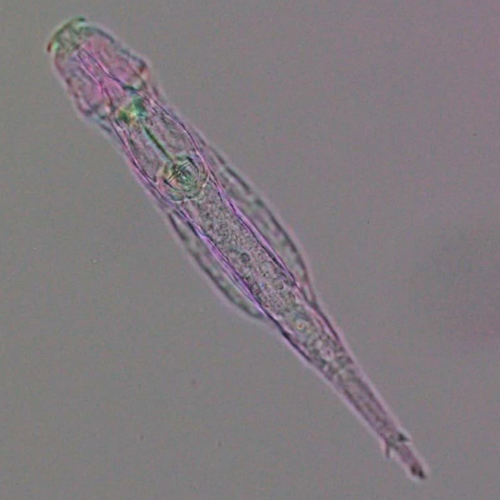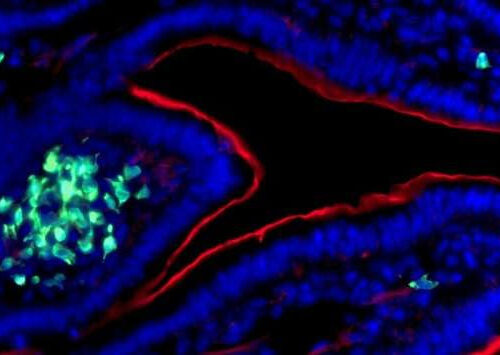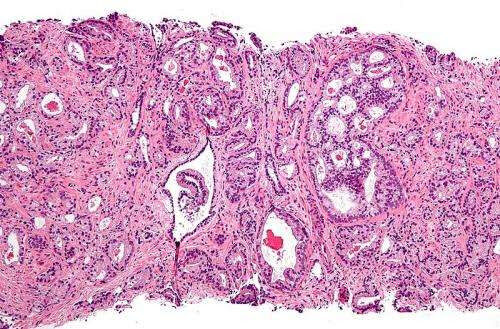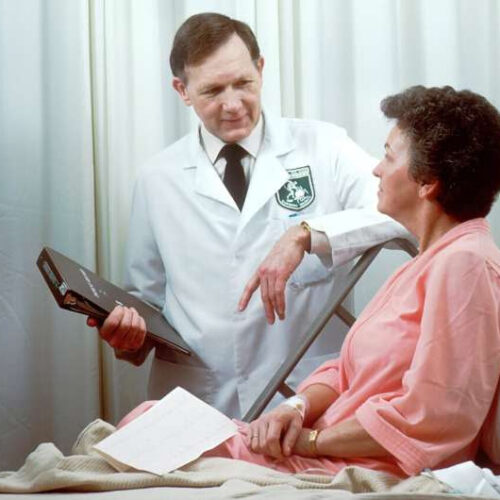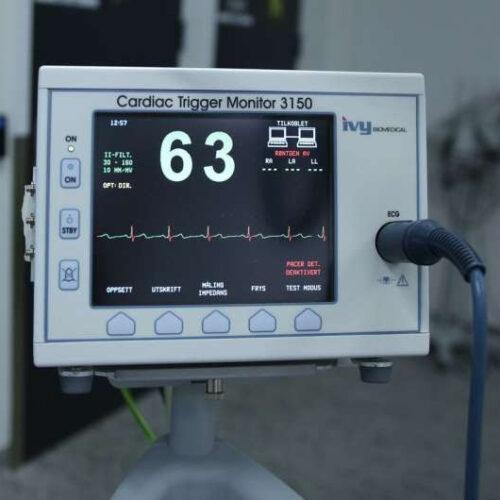UNIVERSITY OF EAST ANGLIA New research from the University of East Anglia (UEA) and Quadram Institute reveals how our immune system can be triggered to attack cancer cells. The research, published today in the Journal of Clinical Investigation, could help develop new approaches to treating people with leukaemia. The team studied acute myeloid leukaemia – a...
Protein protects brain cells most impacted by glaucoma
MEDICAL COLLEGE OF GEORGIA AT AUGUSTA UNIVERSITY IMAGE: DRS. KATHRYN BOLLINGER (LEFT) AND SYLVIA SMITH CREDIT: MICHAEL HOLAHAN, AUGUSTA UNIVERSITY AUGUSTA, Ga. (March 1, 2022) — A ubiquitous protein called sigma 1 receptor, which is known to protect cells from stress, appears key to the function and survival of the neurons most impacted by glaucoma, scientists...
People with multiple sclerosis benefit from telehealth services
RUTGERS UNIVERSITY While many people skipped regular health check-ups during the COVID-19 pandemic, new research indicates that people with multiple sclerosis (MS) used online telehealth services more frequently to keep in contact with their health care providers and were highly satisfied with the outcome. The Kessler Foundation study, published in Archives of Physical Medicine and Rehabilitation, examined...
MBL team discovers new DNA modification system in animals, captured from bacteria more than 60 MYA
MARINE BIOLOGICAL LABORATORY IMAGE: BDELLOID ROTIFER (ADINETA VAGA) UNDER POLYCHROMATIC POLARIZATION MICROSCOPE. CREDIT: M. SHRIBAK AND I. YUSHENOVA WOODS HOLE, Mass. — Your DNA holds the blueprint to build your body, but it’s a living document: Adjustments to the design can be made by epigenetic marks. Epigenetic marks are modifications to DNA bases that don’t...
Discovery of an innate immunological memory in the intestine
by Pasteur Institute Intestinal ILC3s. Immunofluorescence staining of ILC3s (green) in the intestine (nuclei in blue and actin in red). Credit: Nicolas Serafini—Institut Pasteur / Inserm The innate immune system plays a crucial role in regulating host-microbe interactions, and especially in providing protection against pathogens that invade the mucosa. Using an intestinal infection model, scientists...
30-60 mins of weekly muscle strengthening activity linked to 10-20% lower death risk
by British Medical Journal Credit: Unsplash/CC0 Public Domain Between 30 and 60 minutes of muscle strengthening activity every week is linked to a 10-20% lower risk of death from all causes, and from cardiovascular disease, diabetes, and cancer, in particular, finds a pooled data analysis of the available evidence, published online in the British Journal of...
Ultrasound scan can diagnose prostate cancer
by Imperial College London Micrograph showing prostatic acinar adenocarcinoma (the most common form of prostate cancer) Credit: Wikipedia An ultrasound scan can be used to detect cases of prostate cancer, according to new research. Researchers at Imperial College London, University College London and Imperial College Healthcare NHS Trust have found that a new type of...
Why exercise gets harder the less you do
by University of Leeds Credit: Unsplash/CC0 Public Domain Doing less exercise could deactivate a vital protein in the body, causing further inactivity and making exercise more difficult, new research suggests. University of Leeds scientists have discovered that deactivating the Piezo1 protein, a blood flow sensor, reduces the density of capillaries carrying blood to the muscles. This restricted...
Heart disease in women is not like heart disease in men
by Columbia University Credit: Unsplash/CC0 Public Domain Over the past 10 years, heart disease in women—especially young women—has been increasing. More women than men die of heart disease every year. Yet identification and treatment for women is regularly delayed and often misdiagnosed. “Heart disease is the No. 1 killer of women,” says Nisha Jhalani, MD,...
Magnets in newer portable electronic devices can interfere with implanted defibrillators
by American Heart Association Credit: CC0 Public Domain Magnet technology is increasingly being used in portable electronic devices, such as the Apple AirPods Pro charging case, the Apple Pencil 2nd Generation and the Microsoft Surface Pen. However, if the devices are carried in pockets near the chest, and the individual has an implanted cardiac device (ICD),...


